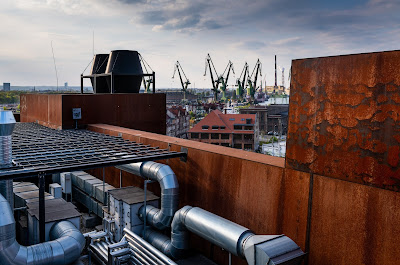Engineers are traditionally underestimated for their creativity, but pipers are the true engineers. They don’t just design pipes, they design systems that help people live better lives. As the article mentions, “It’s not just about pipes. It’s about how that pipe connects to everything else in the system. It’s about what happens after it leaves the plant."
Pipes have been used for centuries all around the world to carry water and other fluids, but they have always been treated as a commodity by most engineers. The decline in traditional industries has led to a decline in demand for pipe specialists, so many of them have had to find work with other companies or become self-employed contractors. But this is all about to change thanks to innovations.
In this article, we will have a look at the complete guide of piping engineering designers and what they do.
Pipe engineering is a blend of different designing skills that are required for the construction of piping systems that need to be installed in various industrial and commercial projects around the world. It is a diverse field and engineers may specialize in one or more phases related to it such as conceptual design, preliminary design, detailed design with regards to structural steelwork, and fabrication concerning pipes, valves, and other fittings.
The job of a piping engineer is quite challenging but rewarding as well. Depending on their specialization they may also be required to coordinate with other departments such as civil engineers for layout work, mechanical engineers for fluid flow calculations with regards to fluids like gas or oil, etc., electrical engineers for circuits, structural engineers for the construction of the building, and architects for design and planning aspects.
 |
| Photo by Jacek Dylag on Unsplash |
Introduction: What is Piping Engineering Design?
Piped engineering is the design of piping systems that conveys water, sewage, or other fluids. Piped engineering designs are used for buildings, plants, bridges, ships, and offshore platforms.
Piping Engineers are responsible for designing the pipework of a project. They also ensure that the piping configuration meets international standards for pipework on all projects they are involved in.
Piping engineers need to have an engineering degree with a specialization in piping engineering to be employed in this field.
Piping engineering design in the field of designing pipes that are used for conveying fluids. Piping engineers are typically involved in projects where fluids need to be transported from one location to another.
One defining feature of piped engineering design is the requirement for flow rates to remain uniform. When fluid flows through a pipe, it will naturally take the path of least resistance, which means that the flow will not be uniform throughout the pipe's length. Engineers need to account for this potential unevenness in their designs by taking into consideration factors such as curvature, diameter and length of the pipe, the viscosity of the fluid being transported, and the velocity at which fluid is moving through it.
Piping engineering design can vary depending on what kind of material is being carried by the pipes and whether or not the fluid being carried is corrosive.
5 Important Qualities of Successful Piping Engineers
Piping Engineers are responsible for the design, construction, and maintenance of piping systems. They are responsible for managing projects from start to finish. They also coordinate with other engineers to make sure that the work is done correctly.
Engineers who want to break into the world of piping engineering should possess these qualities:
1) Expertise in design-related work
2) Knowledge of different types of materials
3) Ability to work independently or as part of a team
4) Excellent communication skills
5) Adaptability
Piping engineers are required to have a wide range of skills and expertise, and they need to be able to work in a variety of environments.
Piping engineers typically work on oil rigs, refineries, chemical plants, and other industrial facilities. Piping engineers may also work in the manufacture of heavy equipment used for mining and milling ore or coal.
Piping engineers require an array of knowledge that makes them qualified for virtually any situation that may arise. The most important qualities that successful piping engineers possess are technical expertise, strong communication skills, and ability to work independently and as part of a team, strong problem-solving skills, the ability to remain calm under pressure, the ability to handle stress well while working with high-pressure situations where there is often little margin for error.
What are the qualities that make a good engineer?
To be a good engineer, one must have the innate ability to solve problems correctly. The pipeline industry is not static and so engineers must be able to quickly adapt to new technologies, regulations, and applications.
A great engineering candidate will have excellent technical skills, but they will also have strong interpersonal skills. Engineers must work closely with designers, project managers, and contractors to understand what they need from them to complete their projects.
 |
| Photo by timea dombi on Unsplash |
How Much do Piping Engineers Get Paid?
The average salary for engineers is $76,000 per year. The average pay for a piping engineer is around $81,000 per year.
Piping Engineers are in high demand. They are the backbone of every industrial project. With the increasing complexity of more modern projects, these engineers are indispensable.
Many things need to be taken into account before one can get hired as a piping engineer. The most important of which is your educational qualification. You will need to have a bachelor’s degree in engineering, preferably with a specialization in plumbing engineering or petroleum engineering.
With this degree, you will have an edge over other applicants due to the increased requirements for new projects and higher salaries for qualified engineers.






0 Comments